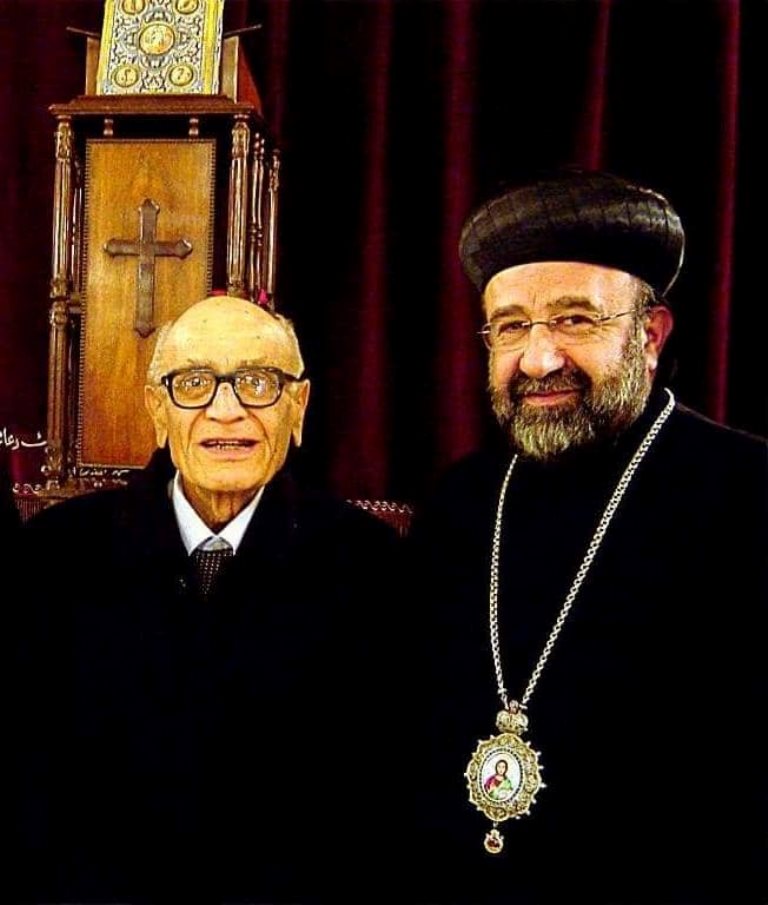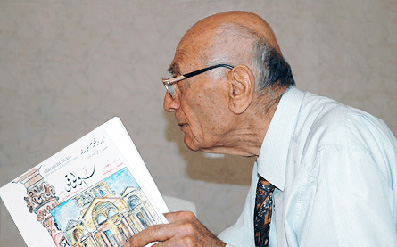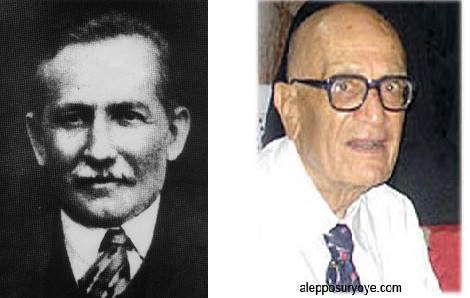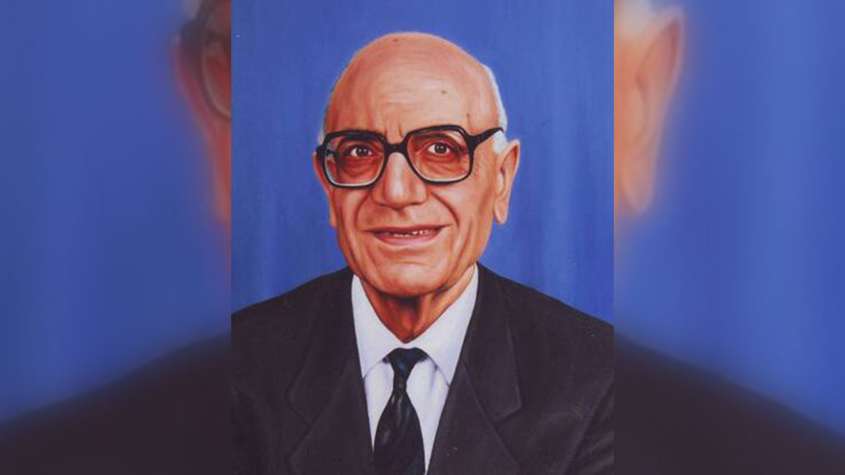Abrohom Nuro: A Journey of Devotion to the Syriac Language and Heritage
A series about influential Syriacs in the modern history of Syria
In the historic city of Urhoy (Urfa / Edessa), the cradle of Syriac civilization, Abrohom Nuro was born in 1923, emerging as an iconic figure in modern Syriac culture. Hailing from an Orthodox Syriac family, Nuro dedicated his life to reviving his people’s language and heritage, leaving an indelible mark on their cultural legacy.
Early Life and Education
In 1924, Nuro and his family fled the hardships of Urhoy, settling in Holeb’s (Aleppo’s) “Barrakat al-Suryan” neighborhood. There, he began his educational journey at the Syriac Quarter School, where he was introduced to the Syriac language and liturgical hymns under the guidance of teacher Ishaq Tashji, studying the “Beth Gazo,” a treasury of Syriac church melodies. Later, he moved to the Mar Ephrem School in the Hazzaza district, where he was influenced by luminaries like Mansour Shilazi and Yuhanon Qashisho, whom Nuro credited as “the first to open our eyes to this path.”
After earning his high school, Nuro pursued law at Saint Joseph University in Beirut. However, his passion for the Syriac language and its literature overshadowed his legal studies, leading him to delve deeply into the Syriac heritage, particularly among the Syriac Maronites.

Pioneering Educational Efforts
Returning to Holeb (Aleppo), Nuro founded the “Imas” and “Itas” brotherhoods to educate children and youth, strengthening the presence of the Syriac language in the community. His efforts extended beyond Aleppo as he taught Syriac in cities such as Jerusalem, Darimsuq (Damascus), and Mount Lebanon, as well as in Syriac Maronite monasteries and the University of the Holy Spirit in Kaslik. He developed an innovative teaching method called “Suluqo,” a modern audiovisual approach published in a book in the Netherlands in 1989, which became a cornerstone for Syriac language instruction.
Literary and Cultural Legacy
Nuro’s scholarly contributions enriched the Syriac language immeasurably. His notable works include:
- “My Journey” (1967): A documentation of his visits to Syriac communities worldwide, capturing their culture and literature.
- “Tuldotho Suryoyotho” (1997): A groundbreaking work compiling modern Syriac terminology.
- Studies on Mar Ephrem the Syrian and contributions to the “Manna” dictionary, adding 2,100 new terms.
His personal library, housing 3,850 rare books in Syriac, Arabic, English, French, and German, stands as a cultural treasure amassed over six decades. Covering history, language, religion, and science, it remains one of the most significant private Syriac collections.

A Vision for Unity and Cultural Rights
Nuro dreamed of unity among the Syriac (Aramean-Assyrian-Chaldean) people and advocated for their cultural rights, particularly the official teaching of the Syriac language. He warmly welcomed the decision to grant cultural rights in Iraq and saw the city of Zalin (Qamishli) as a continuation of Nisibis’ legacy, home to the first university in Beth Nahrin (Mesopotamia).
A Global Voice for the Syriacs
Fluent in multiple languages, including Syriac, Arabic, French, English, Turkish, and German, Nuro carried the Syriac message to the world. He lectured at prestigious institutions like Cambridge and Oxford and traveled to cities across Syria, Lebanon, Iraq, Europe, and beyond, sharing his people’s heritage.

An Enduring Legacy
In 2001, Nuro was ordained a reader deacon at the Mar George Syriac Orthodox Church, a fitting tribute to his lifelong service. He often said, “We are the disciples of Naum Faiq,” reaffirming his commitment to his predecessors’ vision. His legacy, from his writings to his unparalleled library, continues to inspire future generations.
Conclusion
Abrohom Nuro (1923-2009) was more than a scholar; he was a guardian of Syriac identity, embodying his people’s dream of preserving their language and heritage. His journey, from Urhoy to the global stage, remains a beacon for those who believe in the power of culture to shape a brighter future.
In this series
Gabriel Asaad: Pioneer of Syriac Music and Voice of Identity
A Voice Unsilenced: The Journey of Saeed Malki
The Light of the Gozarto: The Epic of Joseph Bahdi Keryo
Mayada Bselis: The Authentic Syriac Voice and Pioneer of Syrian Art
Selim Hanna: The Journey of a Syrian Syriac Artist in the World of Theater and Drama
Iskander Aziz: An Icon of Syrian and Syriac Art
Nouri Iskandar: Ambassador of Syriac Eastern Music and Chronicler of Its Heritage
The Syriac Asfar-Najjar Family: pioneers of Syrian agriculture in a journey through time
Youssef Abdelké: A Visionary Syriac Artist Blending Creativity and Commitment
Yaqub Keryo: The Syriac Journalist and Thinker Who Carried the Torch of Nationalism and Culture
Saeed Ishaq: The Silent Statesman Who Left His Mark on History
The Saga of Bahdi Keryo: A Leader Forged in Fire
Hanna Yaqub Abdulki (1877-1955): The Life of a Man Who Shaped History






















